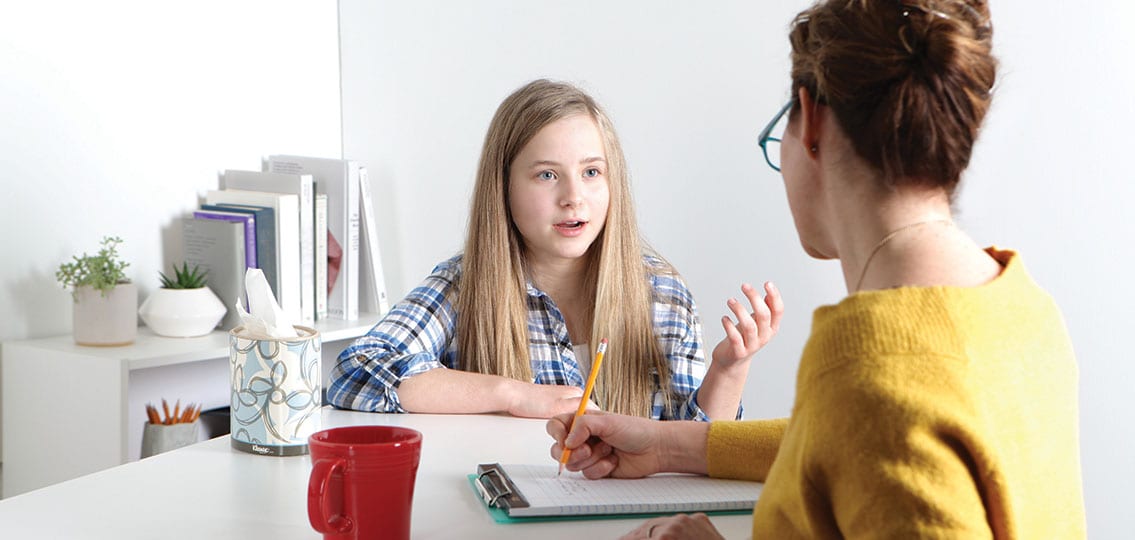The Role of Teen Treatment in Promoting Strength and Confidence
Adolescent years present distinct obstacles that can impact emotional well-being. Treatment offers adolescents an organized environment to address these problems. It outfits them with tools to develop durability and confidence. By discovering to navigate their emotions, teenagers can develop a stronger feeling of self. The journey with treatment is not just about comprehending oneself; it additionally involves cultivating links with others. What approaches arise from this collaborative process?
Understanding the Special Obstacles Faced by Teenagers
As teens browse the turbulent duration of teenage years, they come across a myriad of special obstacles that can substantially affect their strength and self-confidence. The change from youth to their adult years is usually stuffed with public opinions, scholastic expectations, and identity expedition. Peer partnerships become progressively complicated, with the wish for acceptance causing anxiousness and insecurity. Simultaneously, the pressure to stand out in school may cause overwhelming stress and anxiety, influencing psychological health and wellness and self-confidence.
In addition, teenagers might battle with self-image concerns, affected by social requirements perpetuated through social media sites. The consistent comparison can exacerbate sensations of insufficiency. Several teens experience familial challenges, such as separation or monetary instability, which can produce an unstable home atmosphere. These interconnected issues add to a vulnerable sense of self-worth, making it essential for teens to create coping systems and assistance systems to navigate these developmental years properly.
The Benefits of Therapy for Teenagers
Therapy uses adolescents an essential resource for building strength and confidence, specifically taking into account the countless difficulties they encounter. Engaging with an experienced professional permits teens to discover their ideas and sensations in a safe atmosphere, which can lead to enhanced self-awareness. This understanding of their emotions assists them browse the intricacies of teenage years much more properly.
Furthermore, treatment offers adolescents with devices to manage anxiety and anxiousness, promoting a feeling of control over their lives. Through therapeutic techniques, they discover to share their sensations and connect much better with peers and relative, which can boost connections. In addition, treatment can assist teenagers determine their staminas and create a positive self-image, adding to increased confidence. In this supportive setup, they can additionally face and reframe adverse thoughts, paving the way for much healthier coping devices and an extra resistant state of mind. Ultimately, the benefits of therapy can have a long lasting influence on their individual growth
Structure Coping Techniques Via Therapy
Structure coping approaches is an integral component of the therapeutic process for teens. Treatment supplies an organized environment where young adults can discover their habits, feelings, and thoughts, enabling them to identify stress factors and activates in their lives. With numerous methods, such as cognitive-behavioral therapy (CBT), teens discover to challenge unfavorable thought patterns and change them with more positive actions. Role-playing and mindfulness exercises are additionally utilized to enhance psychological law and problem-solving skills.
In therapy, teenagers are motivated to establish tailored coping devices, such as journaling, deep breathing, or engaging in physical tasks. These approaches not just help them take care of immediate stress yet additionally promote long-lasting strength. As they exercise these coping techniques, teens obtain the confidence to encounter difficulties individually. Eventually, constructing efficient coping approaches equips teens with important life abilities, content cultivating their ability to browse future difficulties with guarantee and toughness.

Enhancing Self-worth and Positive Self-Image
While adolescents commonly grapple with instabilities and societal pressures, therapy plays a critical duty in improving self-confidence and promoting a positive self-image. With numerous therapeutic methods, teens discover to determine and test adverse ideas that threaten their self-regard. Cognitive-behavioral strategies, as an example, encourage them to change unsafe self-talk with affirmations and positive ideas.
Furthermore, treatment provides a risk-free area for teenagers to explore their feelings, allowing them to express their experiences and gain recognition. see it here This procedure often causes raised self-acceptance and recognition of their unique qualities.
Moreover, specialists can present mindfulness approaches, aiding young adults grow self-compassion and reduce self-criticism. By attending to promoting and underlying concerns self-awareness, treatment encourages adolescents to establish a much more favorable and resistant self-image. Inevitably, improved self-worth functions as a foundational aspect for navigating life's obstacles and seeking individual goals with self-confidence.
Producing Supportive Relationships and Neighborhood Connections

Encouraging connections and community links are essential for teens as they browse the intricacies of expanding up. These connections give a feeling of belonging and protection, which cultivates resilience and self-confidence. In treatment, teens learn the value of bordering themselves with favorable influences, including pals, family, coaches, and community participants - therapists for teenagers near me. Such relationships can function as a safeguard during challenging times, using emotional assistance and guidance
Furthermore, area connections motivate involvement in social tasks, volunteer work, or group programs that promote teamwork and cooperation. These experiences not only boost social abilities however also impart a sense of function and responsibility. Through treatment, teenagers can recognize and cultivate these supportive networks, discovering to connect efficiently and construct trust. Eventually, fostering strong partnerships and community ties gears up teens with the devices to deal with obstacles, advertising mental well-being and a favorable overview on life.
Frequently Asked Inquiries
How Do I Know if My Teen Demands Treatment?
Indicators a teenager may require therapy consist of relentless unhappiness, withdrawal from tasks, adjustments in consuming or resting patterns, academic decline, compound use, or enhanced irritation. Observing these actions can indicate the need for expert support.
What Kinds of Treatment Are Most Effective for Young adults?
Cognitive Behavior Modification (CBT), Dialectical Habits Therapy (DBT), and household therapy are often effective for young adults. These approaches aid address psychological obstacles, boost coping abilities, and improve communication within household dynamics, advertising general well-being.
How Can Parents Support Their Teenager's Treatment Trip?

Parents can support their teen's treatment journey by actively paying attention, motivating open communication, going to sessions if invited, enhancing coping strategies found out in therapy, and fostering a secure, recognizing atmosphere for emotional expression and growth.
Is Therapy Confidential for Teenagers?
Treatment for teens is generally private, promoting a safe space for read here open interaction. However, therapists may disclose information if there is a risk of injury to the teenager or others, ensuring security continues to be a concern.
How Much Time Does Therapy Usually Last for Teenagers?
Therapy for teens normally lasts in between 8 to 20 sessions, depending upon specific needs and goals. Regularity and duration might vary, with some experiencing much shorter or longer procedures based upon their unique scenarios and responses.
Treatment provides teens a crucial source for developing strength and self-confidence, particularly in light of the many obstacles they face. Additionally, treatment can assist adolescents identify their strengths and develop a favorable self-image, adding to enhanced self-confidence. With numerous methods, such as cognitive-behavioral treatment (CBT), teenagers find out to challenge adverse thought patterns and replace them with more positive actions. While adolescents frequently grapple with insecurities and social stress, therapy plays a critical duty in enhancing self-confidence and fostering a positive self-image. Cognitive Behavioral Treatment (CBT), Dialectical Behavior Therapy (DBT), and family members treatment are usually effective for teens.